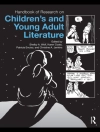In Reconstructing the Native South, Melanie Benson Taylor examines the diverse body of Native American literature in the contemporary U.S. South—literature written by the descendants of tribes who evaded Removal and have maintained ties with their southeastern homelands. In so doing Taylor advances a provocative, even counterintuitive claim: that the U.S. South and its Native American survivors have far more in common than mere geographical proximity. Both cultures have long been haunted by separate histories of loss and nostalgia, Taylor contends, and the moments when those experiences converge in explicit and startling ways have yet to be investigated by scholars. These convergences often bear the scars of protracted colonial antagonism, appropriation, and segregation, and they share preoccupations with land, sovereignty, tradition, dispossession, subjugation, purity, and violence.
Taylor poses difficult questions in this work. In the aftermath of Removal and colonial devastation, what remains—for Native and non-Native southerners—to be recovered? Is it acceptable to identify an Indian “lost cause”? Is a deep sense of hybridity and intercultural affiliation the only coherent way forward, both for the New South and for its oldest inhabitants? And in these newly entangled, postcolonial environments, has global capitalism emerged as the new enemy for the twenty-first century? Reconstructing the Native South is a compellingly original work that contributes to conversations in Native American, southern, and transnational American studies.
About the author
MELANIE BENSON TAYLOR is professor of English and creative writing and of Native American and Indigenous studies at Dartmouth College. She is the editor of The Cambridge History of Native American Literature and The Norton Critical Edition of Faulkner’s Light in August, and the author of The Indian in American Southern Literature; Reconstructing the Native South: American Indian Literature and the Lost Cause; and Disturbing Calculations: The Economics of Identity in Postcolonial Southern Literature, 1912-2002 (both Georgia).












